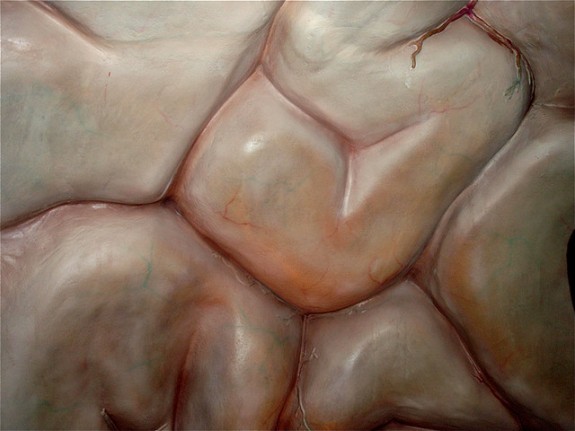To Treat Drug Dependency, Doctors Are Burning Off Chunks of Addicts’ Brains
Through surgical means, doctors burn away the parts of the brain that deal with pleasure and motivation.

Photo: Ton Haex
For people combatting drug addiction and those trying to help them, the battle can be long and arduous. Right now, treating heroin or cocaine addictions involves behavioral interventions, replacement substances (such as methadone) or detoxification programs. The powerful symptoms of withdrawal and the tendency to relapse back to using behavior mean that kicking such a potent dependency is unlikely to ever be easy or seen as a sure thing.
But, in recent years, says Maia Szalavitz for Time, an extreme and incredibly controversial new technique has arisen to combat addiction: through surgical means, doctors actually burn away the parts of the brain that deal with feelings of pleasure and motivation.
“The surgery,” says Szalavitz, “is actually performed while patients are awake in order to minimize the chances of destroying regions necessary for sensation, consciousness or movement.”
Surgeons use heat to kill cells in small sections of both sides of the brain’s nucleus accumbens. That region is saturated with neurons containing dopamine and endogenous opioids, which are involved in pleasure and desire related both to drugs and to ordinary experiences like eating, love and sex.
Szalavitz points to an ongoing controversy surrounding the surgical approach—known as ablation of the nucleus accumbens—that centers on common themes: though none of the doctors talked to by the author were strong advocates for using the technique, some said it is important to pursue the research for scientific purposes. That being said, tampering with the brain is a dangerous (and irreversible) tactic, one that should not be approached lightly.
There is no question that addiction can be difficult to treat, and in the most severe cases, where patients have suffered decades of relapses and failed all available treatments multiple times, it may make sense to consider treatments that carry significant risks, just as such dangers are accepted in fighting suicidal depression or cancer. But in the ablation surgery studies, some of the participants were reportedly as young as 19 years old and had only been addicted for three years. Addiction research strongly suggests that such patients are likely to recover even without treatment, making the risk-benefit ratio clearly unacceptable.
More from Smithsonian.com:
Brain Science: 10 New Studies That Get Inside Your Head
Are Mind-Enhancing Drugs a Good Idea?
/https://tf-cmsv2-smithsonianmag-media.s3.amazonaws.com/accounts/headshot/smartnews-colin-schultz-240.jpg)
/https://tf-cmsv2-smithsonianmag-media.s3.amazonaws.com/accounts/headshot/smartnews-colin-schultz-240.jpg)